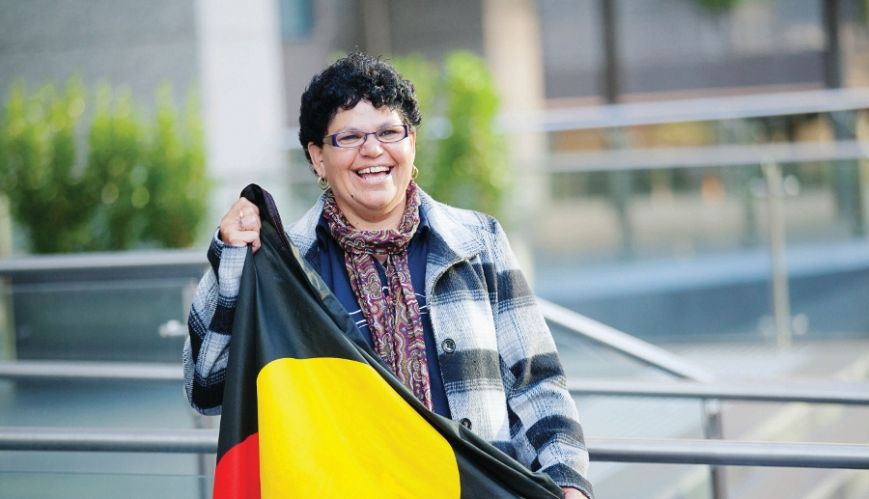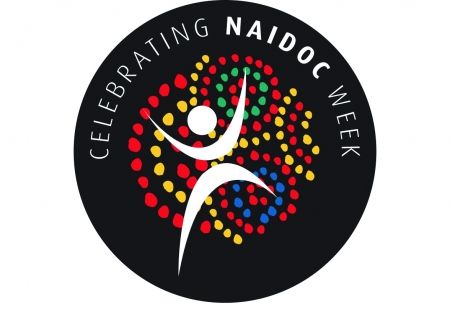Identity and connection

Identity and connection
3 July 2017
Language is a core part of our identity, says Shirli Congoo. Photo: Shairon Paterson
Our Languages Matter is the theme for NAIDOC week from 2-9 July.
The theme’s aim is to celebrate the essential role that Indigenous languages play in both cultural identity – linking people to their land and water – and in the transmission of Aboriginal and Torres Strait Islander history, spirituality and rites, through story and song.
The National NAIDOC Committee encourages all Australians to embrace the 2017 National NAIDOC theme and to explore the use of Indigenous languages in their community.

Many place names for our suburbs, rivers, mountains and parks use words from Indigenous languages. Observing and learning about these words will generate greater appreciation and respect for the significance of Indigenous languages among all Australians.
Over 250 Aboriginal and Torres Strait Islander languages were spoken on the Australian continent pre-European contact. Aboriginal and Torres Strait Islander tribes could speak between three to five neighbouring languages to manage diplomatic issues pertaining to their countries.
Since the early part in the Australian history timeline, Aboriginal and Torres Strait Islander people were actively discouraged from speaking their languages and made to feel ashamed of using them in public.
This ultimately contributed to languages not being spoken, and following generations not learning or using them. Sadly, of the 250 distinct Indigenous language groups that covered the continent at the first significant European contact in the late 18th century, only 120 are spoken today.
Aboriginal and Torres Strait Islander languages, just like all the other languages of the world, signify who we are and where we come from.
Without our own languages, we don’t have much of an identity. Our languages connect us to our peoples, country and journey through time.
Because our language is not traditionally in text, we are still able to depict our culture’s history from the “Dreamtime” through art, stories, song and dance.
As followers of Christ we need to seek biblical reasons first as to why languages matter. There is no scripture that says we should learn a foreign language, but there are biblical principles that encourage us to learn other languages, including:
1. Loving our neighbours: Christ comes to us through the Word (language). Aboriginal and Torres Strait Islander languages are close to their hearts and it is the lens through which they see, evaluate and think about the world. Learning other languages through art, dance, song and stories is a way in which we express our love for our neighbours.
2. Caring for creation: Language is a part of God’s creation. We can gain insight and understanding into the world that God has given us and that he has commanded us to care for through his creation.
3. Praising God: Language gives us new ways of expressing ourselves to praise God who made and designed different languages.
All Salvationists are encouraged to speak with their corps officers or program managers in relation to celebrating NAIDOC Week in your space. For ideas on how to celebrate NAIDOC Week, go to naidoc.org.au/celebrating-naidoc-week
Note: NAIDOC previously stood for National Aborigines and Islanders Day Observance Committee, and the acronym is now the name of the week itself.
Terrence Whyte and Shirli Congoo are part of The Salvation Army’s Aboriginal and Torres Strait Islander team, based in Far North Queensland.